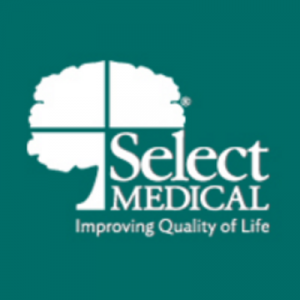Job Description
Registered Nurse (RN-CNI), Day
UC Health is hiring a Part-Time Registered Nurse (RN CNI) for Centralized Telemetry for the Day Shift at the University of Cincinnati Medical Center.
The Registered Nurse will support the Medical Centers busy 16-bed cardiac telemetry unit delivering high-quality care to patients based on assessed needs, established stands of care and according to policy and procedures.
About University Of Cincinnati Medical Center
As part of the Clifton Campus of UC Health, Greater Cincinnati’s academic health system, University of Cincinnati Medical Center has served Greater Cincinnati and Northern Kentucky for nearly 200 years. Each year, hundreds of thousands of patients receive care from our world-renowned clinicians and care team. Our experts utilize the most advanced medical knowledge and technology available, providing a level of specialty and subspecialty medical care that is not available anywhere else in Greater Cincinnati.
UC Medical Center is also home to medical breakthroughs- our physician experts conduct basic, translational and clinical research, leading to new therapies and care protocols, and connecting patients to the latest and most advanced treatments. UC Medical Center houses Greater Cincinnati’s only Level I adult trauma center, which includes the right mix of specialist and medical resources available at a moment’s notice for a wide variety of the most complex medical conditions and injuries.
Unit Details
- Committed to providing an accommodating and inclusive work environment
- Our teamwork model encourages collaboration amongst all members to ensure we provide the highest quality of care.
- Many opportunities available at UCMC for professional growth and development!
Benefit Details
- Medical, Dental, and Vision Insurance
- Employee Paid Short- and Long-Term Disability
- 401K
- Tuition Reimbursement Opportunities
- Community Discounts
Location
Cincinnati, OH, United States
Qualifications
Preferred: Bachelor's Degree from an accredited school of Nursing. | Licensed to practice as a s Registered Nurse in the State of Ohio. Current BLS/ACLS/PALS per department requirements based on patient population needs.
Responsibilities
PATIENT POPULATION - (CLINICAL ONLY)
Engages in population appropriate communication. Has knowledge of growth and development milestones and tasks. Gives clear instructions to patients/family regarding treatment. Involves family/guardian in the assessment, initial treatment and continuing care of the patient. Identifies any physical limitations of the patient and deploys intervention when necessary. Recognizes and responds appropriately to patients/families with behavioral health problems. Interprets population related data and plans care appropriately. Identifies and responds appropriately to different needs resulting from, unique psychological needs or those associated with religious / cultural norms. Performs treatments, administers medication or operates equipment safely. Recognizes and responds to signs/symptoms of abuse or neglect.
Clinical Judgment
- Clinical reasoning coupled with nursing skills acquired through experiential knowledge and evidence-based guidelines. Collects basic level data Follows protocols with all populations and does not deviate from them. Matches formal knowledge with clinical events to make decision
Advocacy (Moral Advocacy)
- Works on another's behalf and represents the concerns of the patient/family and nursing staff. Serves as a moral agent in identifying and helping to resolve ethical and clinical concerns. Works on the behalf of the patients. Makes ethical/moral decisions based on rules. Represents patient when patient cannot represent self. Aware of patient's rights. Maintains patient confidentiality.
Caring Practices
- Nursing activities that create a compassionate, supportive, and therapeutic environment for patients and staff which includes vigilance, engagement, and responsiveness of caregivers. Focus on the usual and customary needs of the patient at the present. Base care on standards and protocols. Promotes patient's independence by establishing patient care goals, teaching the patient/ family to understand condition medications, and self-care skills and answering questions. Maintain a safe physical environment. Acknowledges death as an outcome.
Collaboration
- Works with others (e.g. patients, care providers) to encourage each person's contribution toward achieving optimal patient goals. Willing to be taught and mentored. Participates in discussion regarding patient care and/or practice issues. Maintains cooperative relationship with multidisciplinary care team, remains open to team member's contributions.
Systems Thinking
- Body of knowledge that allows nurse to manage environmental and system resources that exist for the patient , family and staff within or across health care and non-health care systems. Uses a basic array of strategies. Limited outlook- sees the pieces of components. Recognizes negotiation is a limited alternative. Sees the patient/family within the isolated environment of the unit. Sees self as a key resource.
Response To Diversity
- The sensitivity to recognize , appreciate and incorporate differences into provision of care - Includes cultural differences, spiritual beliefs, gender, race , ethnicity, lifestyle socioeconomic status, age and values in provision of care. Provides care based on own belief system. Learns the culture of the health care environment.
Facilitation Of Learning
- Facilitates learning for patients/ families, nursing staff and community including formal and informal learning. Follows planned educational programs. Sees patient family education as a separate task from delivery of care. Provides data to increase patient's understanding. Has basic knowledge of the totality of the education needs. Focuses on a nurse's perspective and sees the patient as a passive recipient.
Clinical Inquiry (Innovator/ Evaluator)
- The ongoing process of questioning and evaluating practice and providing informed practice - Create practice changes through research utilization and experiential learning. Follow standards and guidelines. Implements clinical changes and research-based practices developed by others. Recognizes the need for further learning to improve patient care. Recognizes obvious changing patient situations ( e.g. deterioration, crisis). Needs and seeks help to identify patient problem.









